I have looked at this question in my blog on Possessive apostrophes: when do you need them? but it is worth looking at in more detail, as it is one of the trickier areas of grammar. It is also one where the answer is sometimes not clear, but can either be illogical or even open to choice.
Not all adjectival nouns are possessive
The first thing is to recognise is that a lot of adjectival nouns do not indicate a form of possession or other relationship. (As I explained last week, an adjectival noun is a noun acting as an adjective: modifying or describing another noun.) For example, a child star is someone who was famous when they were a child: Drew Barrymore was a child star. The noun child is describing the type of star, in the same way that former star or current star are nouns with adjectives that specify what particular type of star we are talking about. If we are talking about a star that belongs to or is associated with a child, then we use two nouns to show the relationship, with the first noun taking possessive ending: the child’s star. We understand straight away that this means something different from a child star.
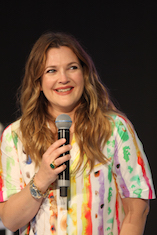

A child star (Drew Barrymore, above) and a child’s star (below)
Choosing between adjectival nouns and possession can change emphasis
But sometimes we do use an adjectival noun to indicate possession or some other form of close association, rather than other sorts of qualities.
- The election result changed the government.
The tricky part is that we can also write this:
- The election’s result changed the government.
Both are correct, and both mean almost the same thing. The first example, where election is used an adjectival noun, gives slightly more emphasis to result; the second example, where both election and result are nouns, gives more emphasis to election – but this is a very subtle difference. The point is that, in some cases, we can choose to use either an adjectival noun or a possessive noun to give a different emphasis to the nouns in our sentence but either choice will be grammatically correct.
The illogical case of periods of time
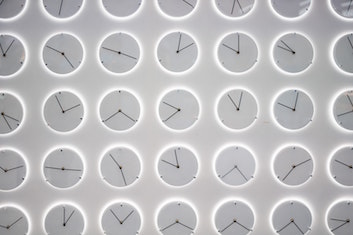
The use of apostrophes in expression of time is not logical
When we have an expression of time where the first noun is plural, we do not use an apostrophe (we treat the first noun as an adjectival noun).
- My plane departs in three hours time.
- I had five days leave when I was sick.
- Two weeks holiday never seems long enough.
When we have an expression of time where the first noun is singular, we use the possessive form (we add ’s).
- My plane departs in one hour’s time.
- I had a day’s leave when I was sick.
- One week’s holiday never seems long enough.
It is true: this makes no sense. There is no logic to it. It is just how contemporary Australian grammar works. My personal theory is that people were confused about the possessive plural because it was not obvious possession and because people are just often plain confused about apostrophes, so it became easier to leave the apostrophe off the plural form. But when we say the singular forms, it just sounds completely wrong to say an hour time, a day leave or a week holiday, so the possessive form hangs on.

One week’s holiday is possessive but two weeks holiday is adjectival: this makes no sense but is correct
Organisations’ names: adjectival or possessive?
The expressions that cause writers the most bafflement generally relate to schools and organisations. Is it a girls’ school or a girls school? A workers’ union or workers union?
Note that these are plural words: if we were talking about the school of a particular girl or the union of an individual worker, we always use a possessive:
- the girl’s school is a short distance away not the girl school is a short distance away
- the worker’s union has been very helpful not the worker union has been very helpful
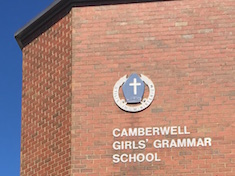
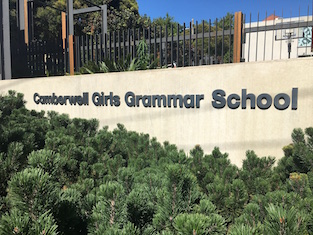
Sometimes organistions themselves don’t seem certain about whether or not they should use an apostrophe . . .
If you are writing about a particular institution, the only thing you can do is check what the organisation itself does. Generally, schools tend to be conservative and tend to prefer to have an apostrophe, but you cannot assume this is so. My favourite use of an apostrophe in an an organisation’s name is the name of the now-defunct Builders Labourers’ Federation, where the punctuation makes it clear that the federation belongs the labourers, but the labourers do not belong to the builders!

The use of Builders as an adjectival noun rather than a possessive noun makes a clear political point in the name of the Builders Labourers’ Federation
Irregular plurals: always possessive
There a few words that must always be possessive rather than adjectival, and these are nouns that have irregular plurals (they don’t form a plural by adding s): children, women and men are the most common, but this also applies to less common words such as mice and dice. We never use these words as adjectival nouns but always as possessive.
- children’s bookshop never children bookshop
- women’s hospital never women hospital
- men’s health never men health
We also nearly always use possessives for woman and man. The exceptions are in place names, and also the recent expression man cave (and the less common parallel, woman cave). Otherwise, we use possessives:
- a woman’s work is never done not a woman work is never done
- a man’s home is his castle not a man home is his castle
Man cave is an exceptional expression where man is used as an adjectival noun rather than a possessive noun
When is it your choice?
To achieve consistency in a publication or across a series of publications, individuals can decide, where the meaning is similar, to always use a possessive noun or an adjectival noun: as I have noted in my earlier blog, the travel publisher Lonely Planet decided at one stage that it would treat the expressions readers letters, travellers cheques, farmers market and artists colony as expressions with adjectival nouns, rather than two nouns with the first showing possession (having an apostrophe). If you are an organisation that is large enough or if you are an individual who is confident enough, and you are consistent, this will not look like an error, even if readers are used to seeing apostrophes in these expressions. There is tendency these days to use fewer apostrophes (as has happened with periods of time), and one prominent Australian grammar expert has argued for the abolition of possessive apostrophes completely: listen for both her view and an opposing one in this segment from ABC Radio Melbourne’s Breakfast Show.
In summary: only some adjectival nouns are possessive, and many times you can use either a possessive noun or the adjectival noun without much change in meaning. If you are writing about a particular organisation, you should always check whether the organisation uses the possessive form or not. There are special rules for expressions of time and nouns that have irregular plurals.
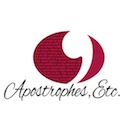
If you have found this post interesting, you can find a full index to my other posts on the index page. To be notified when I post a new topic, follow me on Facebook! If you have any particular questions you’d like me to answer in future posts, just send me a message. I’m always interested to learn what people think, and how you came across this site, so please post a comment.
If you think you would be interested in either my complete grammar course or an individual customised online course (particularly suited for people who don’t live in Melbourne), just click your preferred option for more details.
Images: Drew Barrymore in Australia in 2019 photo by Eva Rinaldi on Wikimedia Commons, used under a Creative Commons Attribution-Share Alike 2.0 licence; child with a star by Jeremiah Lawrence on Unsplash; clocks by Donald Wu on Unsplash; beachside books by Link Hoang on Unsplash; Camberwell Girls’ Grammar by the author; union registration card from Wikimedia Commons; man cave –Artist and moldmaker John Billings works on the latest set of Grammy Award trophies, which he crafts in his Ridgway, Colorado, basement workshop. Original image from Carol M. Highsmith’s America, Library of Congress collection. Digitally enhanced by rawpixel.